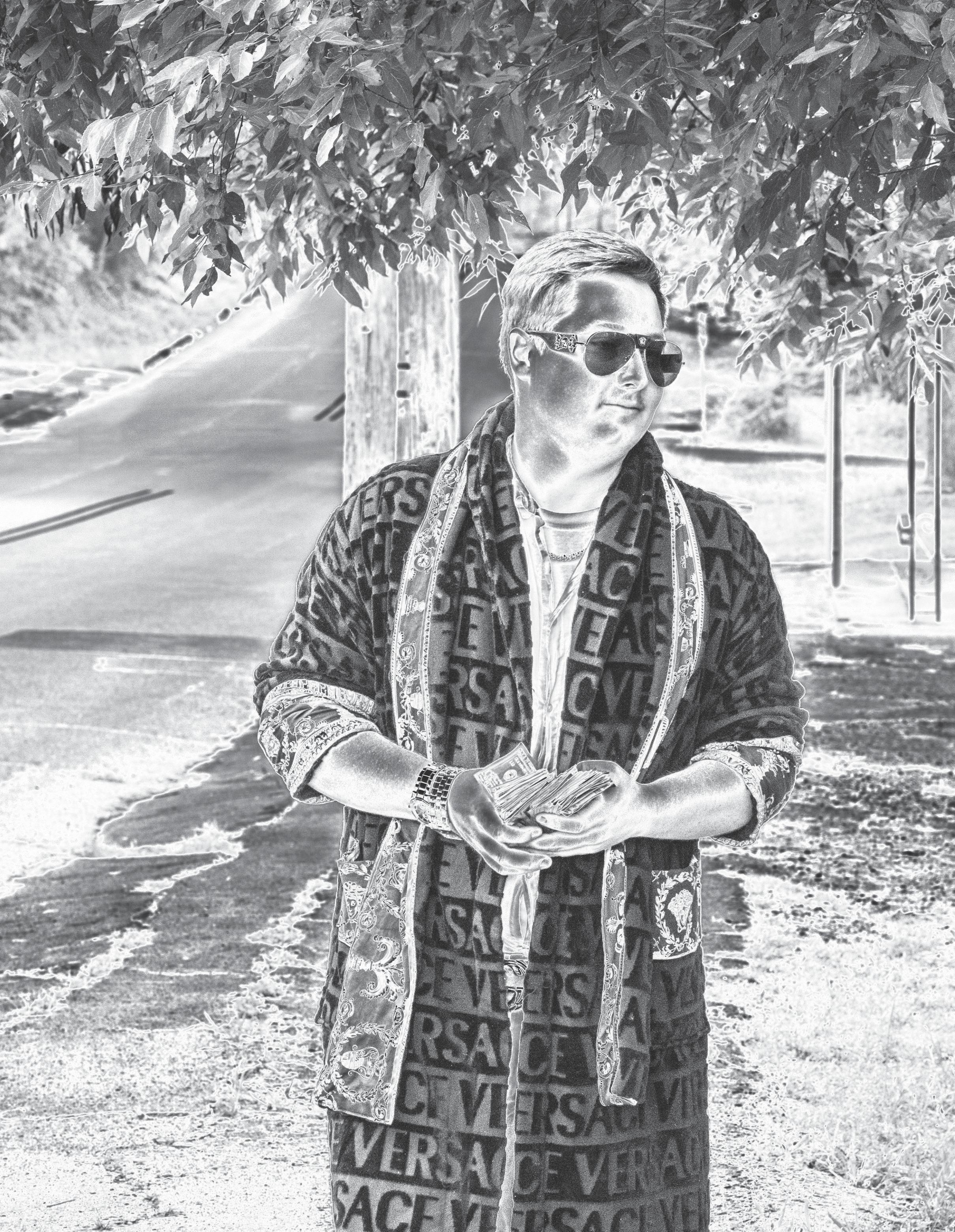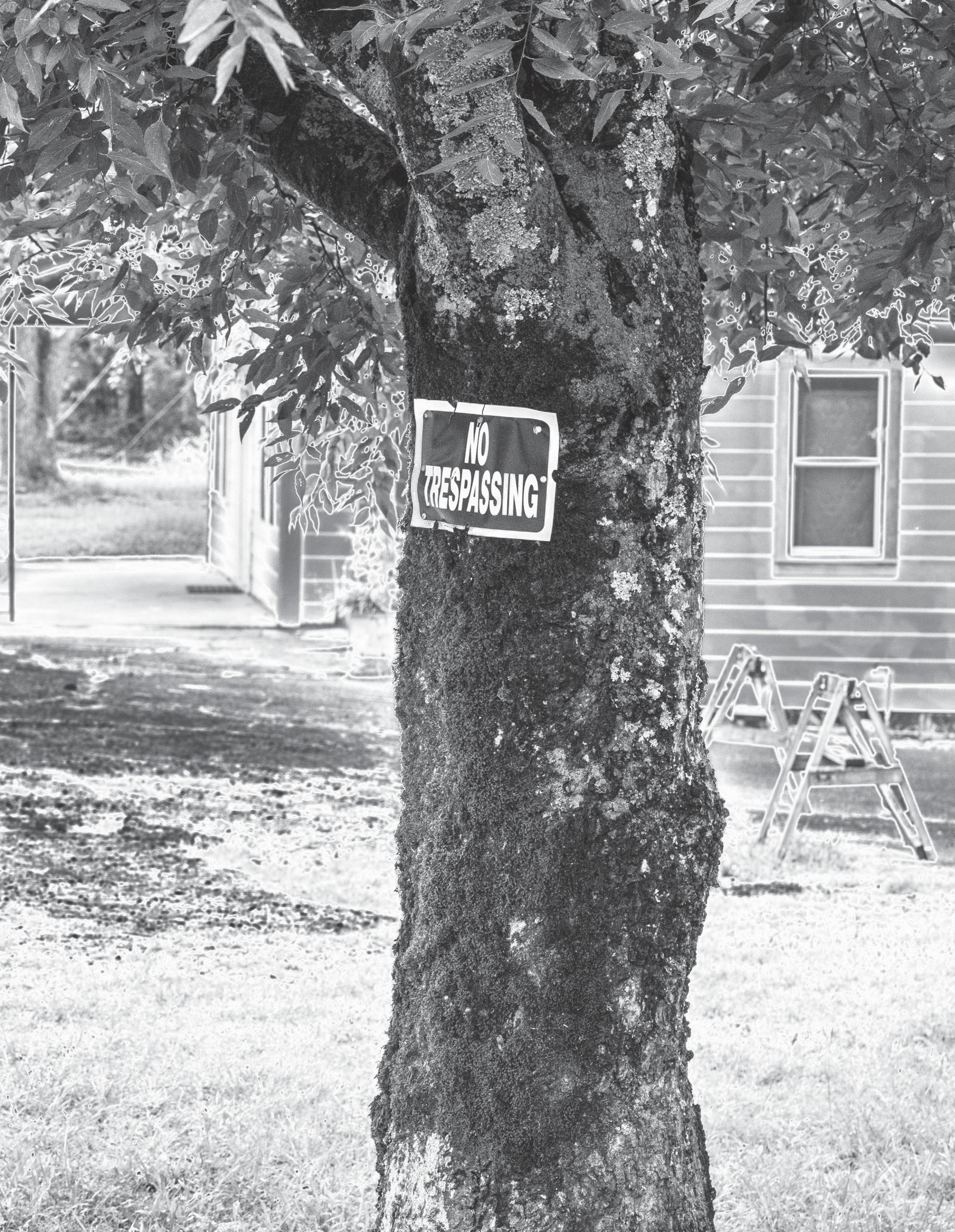
3 minute read
Rules of Engagement
from LIFE & HOME
Text by Heather Bennett | Photograph by Jeff Rosinbaum
It’s November 9, 2019. Onstage at Texas Tech University, Arkansas rapper Matt Moolah and Hot Memphis artist NLEChoppa electrify hundreds of fans with Matt’s new track, “Updown”, a single recently released by Brooklyn, New York’s Bushwick Productions. It’s the fourth show in a sixteen date tour — fourteen dates are college campuses, two are arenas. For the moment, there are no signs of stopping this rising star in the music industry. With twelve thousand followers on Instagram and a busy schedule of music production and promotion, this native son of Royal shows no sign of slowing down...until the world slows down around him.
Advertisement
Like many rising stars in the entertainment industry, the 25- year-old hip hop artist realizes that generating and maintaining career momentum is essential in building an audience. After his single “On The Way” reached a viral status in late 2018 with a quarter of a million streams in two months, the rapid rise of Matt Mooluh’s brand seemed inevitable. The track brought him to the attention of his current producers and expanded his territorial sights to include performances beyond his home turf: “I’m no longer considered a local artist,” he explains. “Now I’m considered what they call a ‘regional artist’ since I can book a show in places like Dallas, Louisiana, or Missouri and be recognized.”

Although the physical crowds have dispersed for the time being, Mooluh affirms that he and his associates continue to press on, ensuring that their music reaches the ears of a quarantined audience hungry for fresh beats. “When COVID hit and the twelve shows we had left on our schedule were canceled, I told my team to look for the positives in this,” he says. “When we were on the road, we didn’t have the time to do the promotional things we’re doing now. For instance, I did a television interview last night. And when you’re on tour, you’re spending money on things like hotels and stuff to keep the people you travel with taken care of. Now, the focus is on getting as much money as we can before we’re free to get back on the road.”
As an artist and a businessman, Mooluh acknowledges that the rules of the engagement have recently changed for the entertainment industry. He’s concerned not only for himself but also for the venues who book his act.“Nobody could have predicted the fallout we're seeing now. COVID has really affected the small venues, and a lot of them are closing down. We’re really hoping that this doesn’t affect us all longterm.”
The year 2020 isn’t the first time Mooluh has faced obstacles in pursuit of his artistic dreams; his initial intention of performing original songs self-accompanied by a guitar took a detour at age 17 as the result of a freak accident involving a broken window.

Sustaining serious nerve damage in his hand may have abruptly ended his guitar playing, but Mooluh translated this potential setback into an opportunity to redirect his creative energy into the different stylistic territory. Learning to read and play music as a child benefitted him tremendously in his current situation, which relies heavily upon cooperation and communication amongst artists to bolster exposure to a wider audience.
It’s these genre-wide connections thatare turning Mooluh’s home state into ahotbed of hip-hop talent. “When [mycareer] began, I was thinking I would haveto leave Arkansas before I could come backand be recognized,” he says. “But after alocal artist like Bankroll Freddie goes outand gets a deal witha huge label, thatdraws attention to thelocal scene.” Whentypical modes of promotionin limbo, Mooluh can still relyupon collaboration with other major localartists to maintain spotlight relevance.
“We’ve never encountered a situationlike this in our industry,” he muses. “It’s upto us to come up with ways to stay outthere and keep our music and ourbusinesses going. ∞




